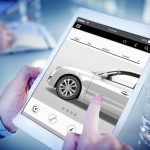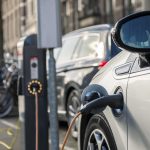People born in the ‘80s or earlier can still remember a time when people had to look in the yellow pages, call a business or drive somewhere to learn more about products. Love it or hate it, the internet has completely changed the way people live their lives and shop.
The stigma associated with buying a used car was built over the latter half of the 20th century. People told jokes about “lemons” and used car salesmen that were often false or exaggerated, even then.
The internet has gone a long way towards dispelling those tropes.
You don’t necessarily have to buy a car online to take advantage of safer used car dealership shopping experiences. Online inventories, pre-owned certifications and a nearly limitless supply of information has made online research and vehicle purchases from used car dealerships an easy choice for many car shoppers.
Quality VerificationsConcerns about reliability are certainly not exclusive to used
We haven’t quite made it to flying cars like The Jetsons, but we do at least have electric cars. They are environmentally friendly, energy-efficient and typically require less maintenance. States, the federal government and manufacturers are also incentivizing the purchase of electric vehicles with rebates and tax credits. Purchasing an electric car can save you money and save the planet.
Maryland is one of 10 states that participates in the Zero Emissions Vehicles (ZEV) program. The ZEV program aims to reduce harmful emissions by requiring automakers to meet certain electric and hybrid vehicle production and sales quotas based on the number of non-electric cars they sell.
In addition to ZEV, Maryland’s Department of Transportation and the state’s Energy Administration have partnered to encourage residents to purchase electric vehicles (EVs). Their efforts have culminated in multiple current and future incentives for those who do purchase an EV.
Tax Credits for EV Vehicle PurchasesElectric car buyers
In 2016, hybrid (HEV) and electric vehicles (EV) accounted for just one percent of all the vehicles sold worldwide. The industry estimates that by 2025 about 30 percent of all vehicles sold will be EVs and HEVs. Global sales for electric vehicles were up to 3.27 million as of 2019, and are expected to reach about 27 million by 2030.
The rapid growth of electric and hybrid vehicle popularity is considered by many in the industry to be a cataclysmic shift in the auto market. Government incentives, pollution regulations and the affordability of electricity as a fuel source are driving rapid EV adoption.
Auto Makers Committing to EV and HEVIn January 2021, General Motors made history by being the first major U.S. manufacturer to make a total commitment to EV. Their goal is to eliminate gasoline and diesel car, van and SUV production by 2035. GM also wants to be a carbon neutral company
Being in the market to buy a new car can be overwhelming, especially with all the ways to buy a car these days. The internet has made the new and used car market easily accessible to all, but the debate is still ongoing about purchasing a car with 0 miles versus 30,000 miles.
The truth is that buying a car is personal, so the real question is, what is better for you? Most car buyers are focused on value; that is why at Eastern Automotive, we believe buying a used vehicle tends to be the better choice for shoppers.
If you are trying to decide if you should buy a used car or a brand-new car, here are some factors to consider.
New Car Versus Used Care DepreciationWhat is depreciation? It is the reduction of value over time. The rate of depreciation on brand-new vehicles tends to be accelerated. A new car can depreciate










